Cleaning your dog’s ears regularly prevents painful infections, removes wax and debris, and helps you spot health issues early. A simple routine at home keeps your dog comfortable and supports long-term ear health.
Why Dog Ear Cleaning Matters
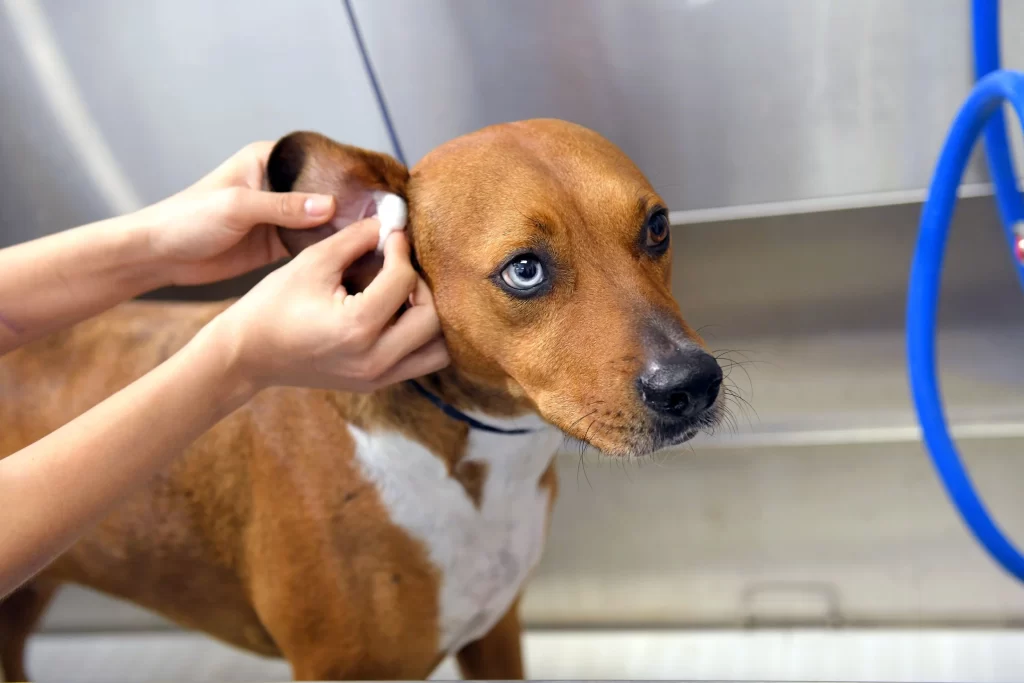
Dog ear cleaning is important because dirty ears are a breeding ground for infections. Wax buildup, dirt, and trapped moisture encourage bacteria and yeast to spread.
- Prevents infections by removing debris where germs thrive
- Reduces discomfort and scratching caused by wax and mites
- Improves effectiveness of any ear medication if infection occurs
Veterinarians recommend ear care as part of overall grooming. Keeping ears clean lowers the chances of costly vet visits caused by avoidable problems.
How Often Should You Clean Your Dog’s Ears
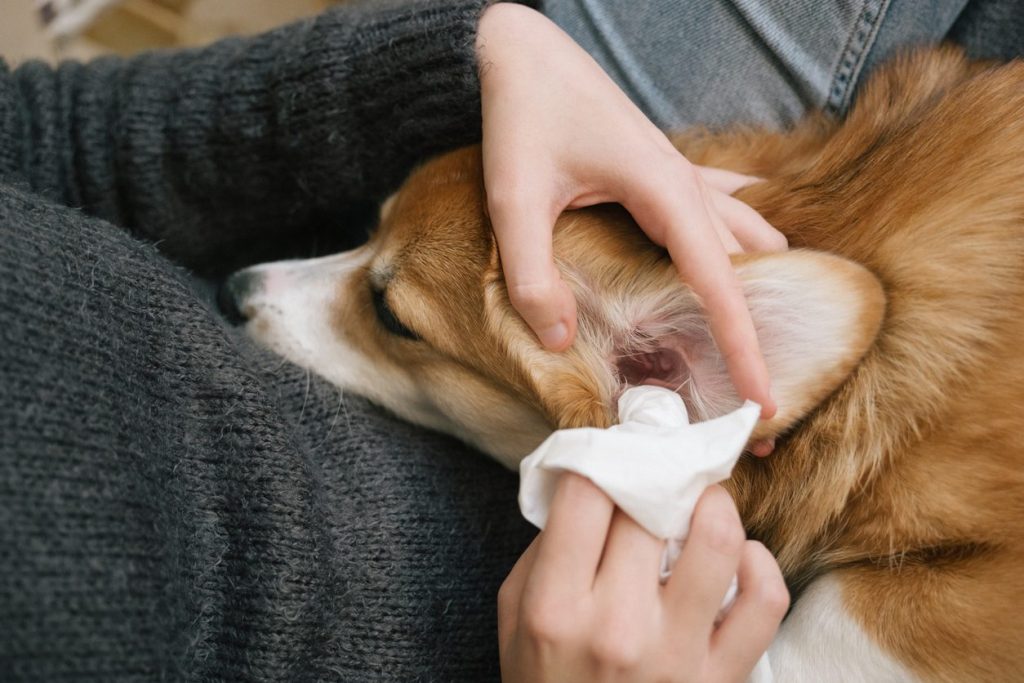
How often you clean depends on breed, lifestyle, and health.
- Dogs with floppy ears like Spaniels or Basset Hounds need frequent cleaning
- Swimming dogs or outdoor adventurers require regular checks
- Breeds with upright ears need less cleaning but should still be checked
Signs your dog needs ear cleaning:
- Foul odor
- Visible wax or dirt
- Excessive head shaking or scratching
If you see redness or discharge, speak with a vet before cleaning.
Step-by-Step Guide to Cleaning Dog Ears Safely
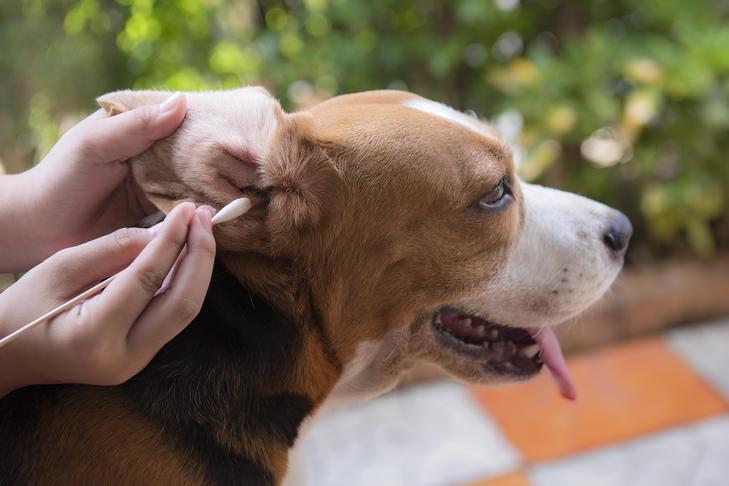
Cleaning dog ears at home is simple with the right approach.
Tools needed:
- Vet-approved ear cleaning solution
- Cotton balls or gauze pads
- Towel
- Treats for reward
Steps:
- Lift the ear flap gently
- Apply cleaning solution into the ear canal as directed
- Massage the base of the ear for 30 seconds
- Allow your dog to shake its head
- Wipe excess liquid and debris with cotton or gauze
Mistakes to avoid:
- Do not use cotton swabs inside the ear canal
- Do not use vinegar, hydrogen peroxide, or alcohol which cause irritation
- Do not force cleaning if the dog shows pain
Common Ear Problems in Dogs and How Cleaning Helps
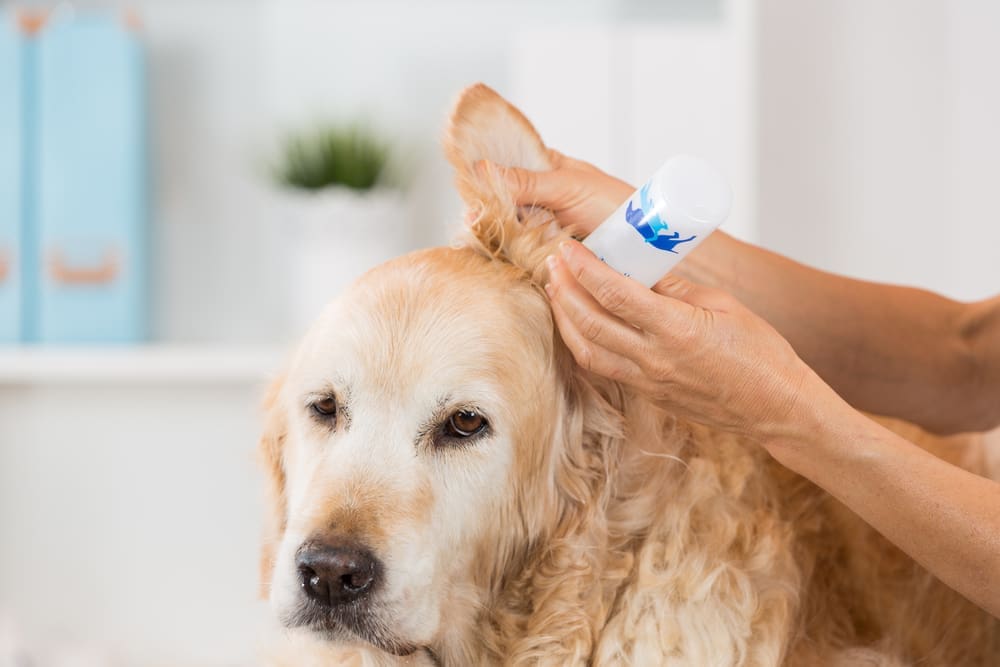
Cleaning prevents many common ear issues.
Ear infections:
- Symptoms include odor, redness, swelling, and discharge
- Caused by bacteria and yeast that thrive in dirty ears
Wax buildup and blockages:
- Leads to discomfort and reduced hearing
- Regular cleaning removes excess wax
Ear mites and allergies:
- Cause intense scratching and dark discharge
- Cleaning helps manage symptoms but veterinary care may be needed
When to seek veterinary help:
- Persistent foul odor
- Bloody or pus-like discharge
- Visible swelling or extreme pain
Best Products and Natural Solutions for Dog Ear Cleaning
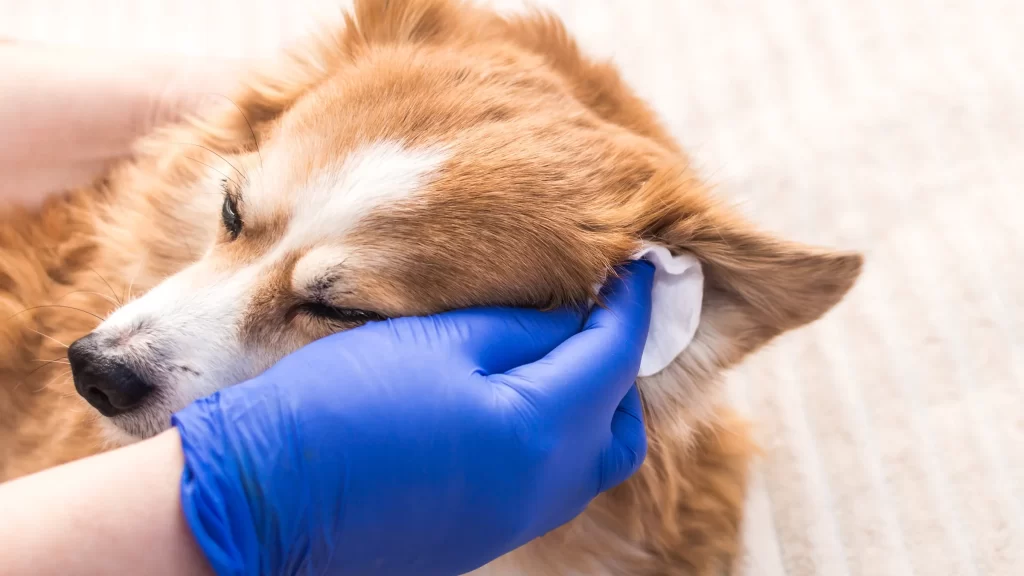
Using safe, approved products is critical for ear health.
Vet-approved products:
- Ear wipes designed for pets
- Gentle liquid cleaners recommended by veterinarians
Natural remedies:
- Witch hazel and aloe vera can soothe irritation when approved by a vet
- Warm water with cotton pads for surface cleaning
Avoid:
- Alcohol, hydrogen peroxide, or harsh household products
- Human ear cleaning products
Dog Breeds That Need More Frequent Ear Cleaning
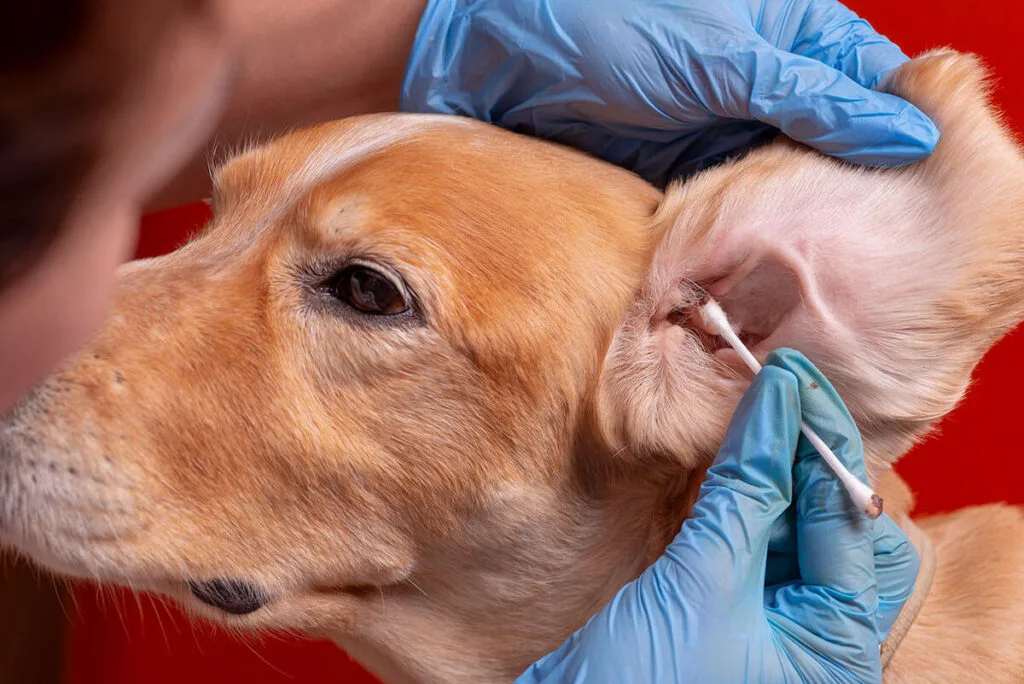
Some breeds are more prone to ear problems.
Floppy-eared dogs:
- Cocker Spaniel
- Basset Hound
Dogs with heavy hair growth in ears:
- Poodle
- Labradoodle
These breeds benefit from weekly cleaning to reduce trapped moisture and debris. Breed-specific grooming often includes ear trimming and regular checks.
When to Visit the Vet for Ear Care
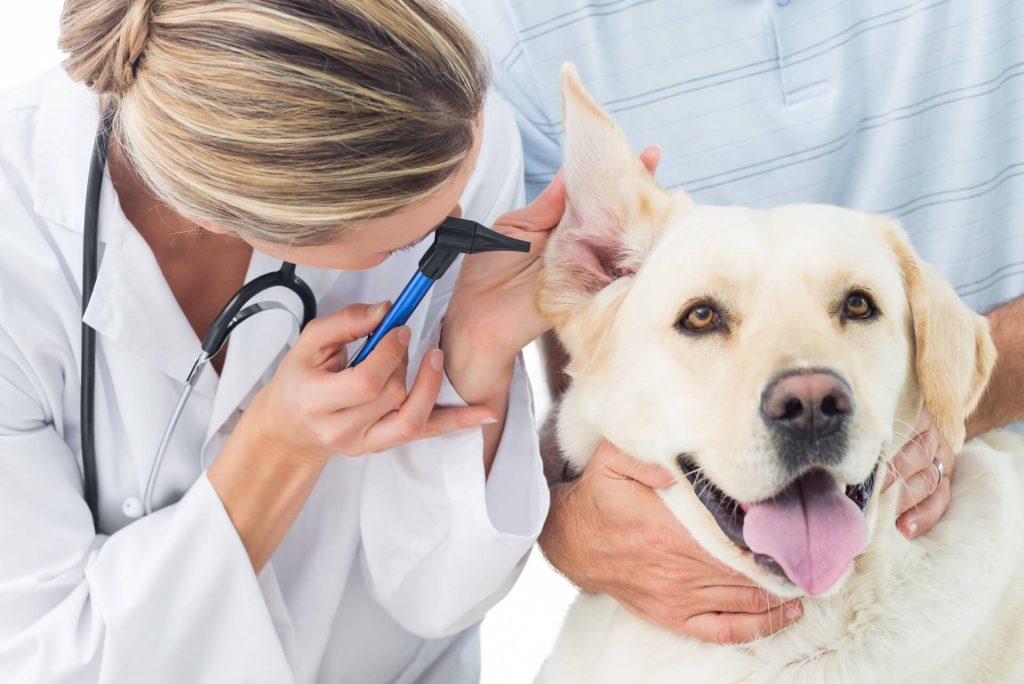
Sometimes cleaning is not enough and veterinary attention is required.
Visit the vet if you notice:
- Redness and irritation that worsens
- Swelling inside the ear canal
- Strong foul odor
- Bloody discharge
Regular vet checkups help prevent long-term problems. If infection develops, cleaning before applying prescribed medication improves recovery.
Building an Ear Cleaning Routine for Your Dog
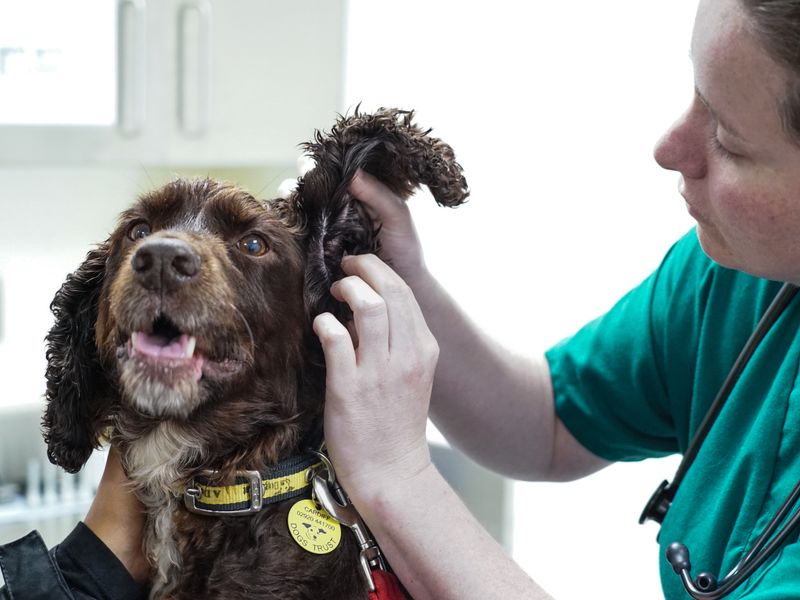
Ear cleaning should be part of your pet hygiene routine.
Tips for building a habit:
- Clean ears after baths or swimming
- Combine with grooming tasks like brushing and nail trimming
- Use rewards to reduce stress and make it a positive experience
For owners wanting to deepen their knowledge of pet health and care, our animal welfare course provides expert guidance to build safe routines and improve overall wellbeing.
Careers Collectiv encourages owners to integrate ear care into grooming schedules. Routine checks reduce risk and keep dogs healthier.
FAQs About Cleaning Your Dog’s Ears
Can I use baby wipes?
No, use pet-specific ear wipes to avoid irritation.
How do I know if my dog has an ear infection?
Watch for odor, redness, discharge, or scratching.
What if my dog hates ear cleaning?
Reward with treats, keep sessions short, and build trust gradually.
Do all dogs need their ears cleaned?
Yes, but frequency depends on breed, health, and lifestyle.
Keeping Your Dog Healthy With Regular Ear Care
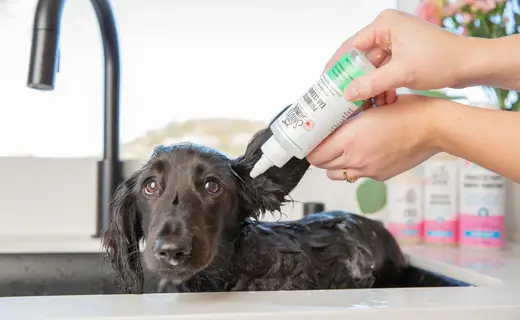
The importance of cleaning your dog’s ears regularly is simple. Clean ears reduce infections, improve comfort, and allow early detection of health issues.
Quick reminders:
- Check ears weekly for signs of buildup or infection
- Use safe, vet-approved products
- Seek veterinary help if symptoms appear
- Make ear cleaning part of your pet hygiene routine
With guidance from Careers Collectiv, you ensure your dog stays comfortable, healthy, and free from unnecessary ear problems.